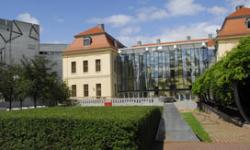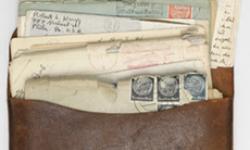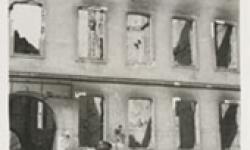The idea to establish a Jewish Museum was voiced in 1971, the year in which Berlin's Jewish community commemorated its 300th anniversary. At the community's suggestion, the exhibition "Achievement and Destiny" was displayed in the Berlin Museum in Berlin, Germany.
But far greater emphasis was now placed on the history of Berlin's Jewish community, Jewish life before and after 1933, and the role played by a number of important Jewish figures. The Jewish Museum Berlin was conceived of as eloquently reviving an older tradition, that of the Museum opened in the Oranienburgerstrasse shortly before Hitler's rise to power in 1933. Housing the Berlin Jewish community's collection of art and Judaica, this Jewish Museum Berlin was shut down by the Gestapo in 1938, its holdings confiscated.
The "Association for a Jewish Museum" was founded in 1975. Towards the end of 1978, the Berlin Museum first displayed an exhibition of the new acquisitions for a future Jewish Museum Berlin . 1983 saw an historical exhibit on Berlin synagogues. From 1986 to 1998 three additional galleries were opened on the third floor of the Martin-Gropius-Bau (the former Museum of design, now named after its architect).
For additional exhibition room in the Jewish Department of the Berlin Museum, it launched an architecture competition for an extension of the Berlin Museum. Competing against 165 other architects, Daniel Libeskind won the competition in June 1989. The foundation stone for the extension building was laid in November 1992 and the topping-out ceremony celebrated in May 1995. The Libeskind Building was finished in 1998. During the construction work for the Libeskind Building, intense and controversial discussions revolved around the use of the extension and the status of the Jewish Museum. Ammon Barzel, who became the Director in 1994, for example, demanded more autonomy for the Department Jewish Museum Berlin in the Berlin Museum.
The Jewish Museum Berlin has proved to be a focal attraction with 3.5 million visitors in its first five years of existence, making it one of Germany's most visited Museums. Offering guided tours, temporary exhibitions, and a diverse calendar of events including scientific symposia, concerts, talks, workshops for kids and teens to name but a few, the Museum has secured its reputation as a lively center for Jewish history and culture.



Jewish Museum Berlin reviews
Login to comment